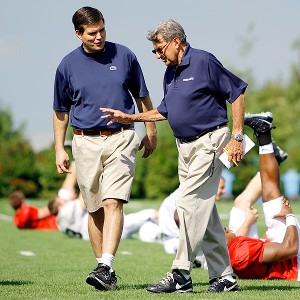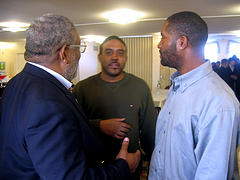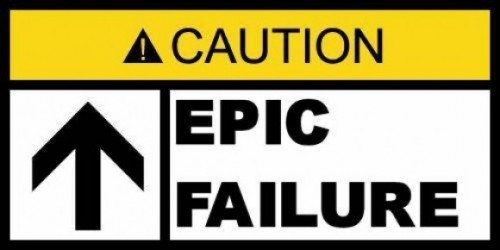 You and I can have an impact upon others that outlasts your lifespan on this earth. In fact, it is unavoidable. The big question is whether or not that it will have been a positive impact.
You and I can have an impact upon others that outlasts your lifespan on this earth. In fact, it is unavoidable. The big question is whether or not that it will have been a positive impact.
Following certain Biblical principles, you can leave a legacy, a spiritual inheritance that will affect the lives of others for all eternity.
I have discussed this in my previous articles. And many others have discussed the idea of leaving a legacy as well. Presidents often speak of leaving a “legacy” when their term is done. You hear expressions like: “President Clinton’s legacy is…” or “What will President Bush’s legacy be?” These expressions are referring to the impact that their presidency will have upon future generations. It means, how will history remember them?
I want to talk to you today about leaving a Spiritual legacy, a spiritual inheritance, for those who come after us. Passing on to the next generations a legacy with eternal value is far more important than a temporal inheritance of money and property.
Proverbs 13:22 says, “A good man leaves an inheritance for his children’s children.”
But what does that really mean? I have already said that things of eternal value are of the utmost importance. So, on a practical level, what can I do?
 My wife and I recently met with our financial advisor. We looked at where we are currently and whether or not we are “on track”. He told us we are on track. That was good news. I asked him to share with us his projections and the parameters that he was using. He ran our life span out to age 90. And at the ripe old age of 90, he said we still had a little money left over to “leave to the children”. I felt pretty good about that. You know, leaving money to our young children and all. But then my wife asked him to run the projection out to age 100! Strangely enough we don’t have a whole lot of money left at that point. I was downhearted at the prospect of that. But, my intelligent and highly mathematically inclined wife quickly reminded me that when we are 100, our “children” will be in their early and mid 70s! They will probably have been retired for 15 or more years themselves! And their children will be in their 50s and probably thinking about retirement for themselves! I had it all wrong.
My wife and I recently met with our financial advisor. We looked at where we are currently and whether or not we are “on track”. He told us we are on track. That was good news. I asked him to share with us his projections and the parameters that he was using. He ran our life span out to age 90. And at the ripe old age of 90, he said we still had a little money left over to “leave to the children”. I felt pretty good about that. You know, leaving money to our young children and all. But then my wife asked him to run the projection out to age 100! Strangely enough we don’t have a whole lot of money left at that point. I was downhearted at the prospect of that. But, my intelligent and highly mathematically inclined wife quickly reminded me that when we are 100, our “children” will be in their early and mid 70s! They will probably have been retired for 15 or more years themselves! And their children will be in their 50s and probably thinking about retirement for themselves! I had it all wrong.
Well, consider the following as some practical guidance from a Biblical perspective.
Our children and grandchildren should be target #1 for our legacy. – Your primary task in life is
Click here to read the rest of the article »

















